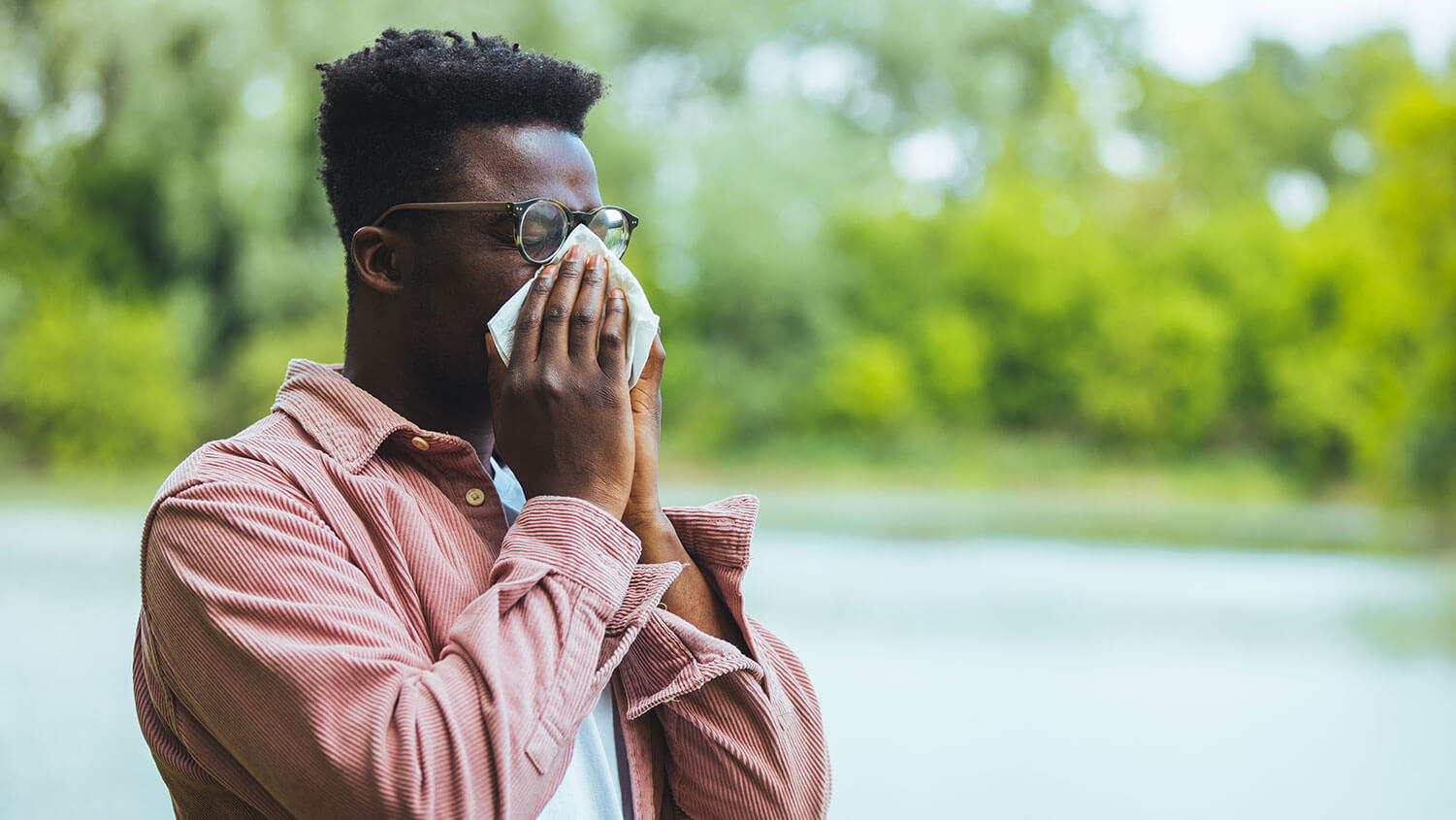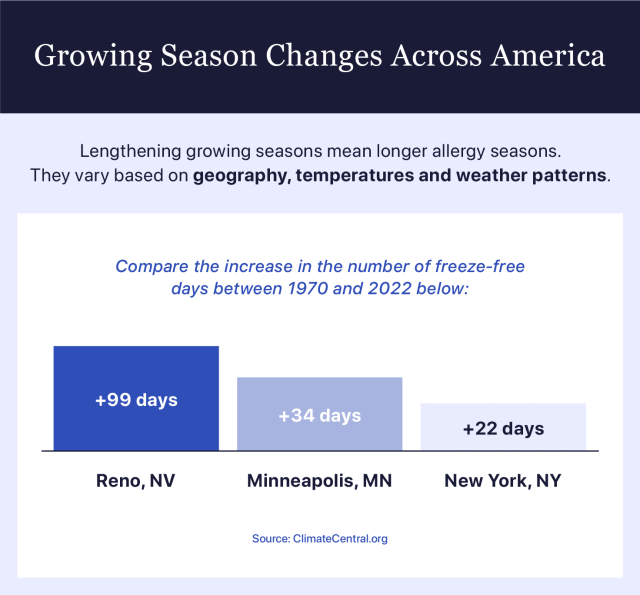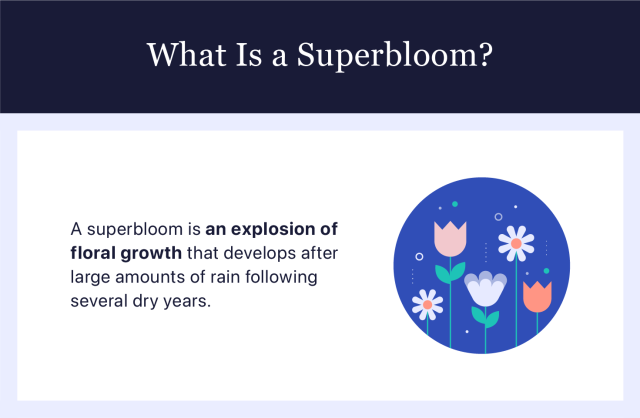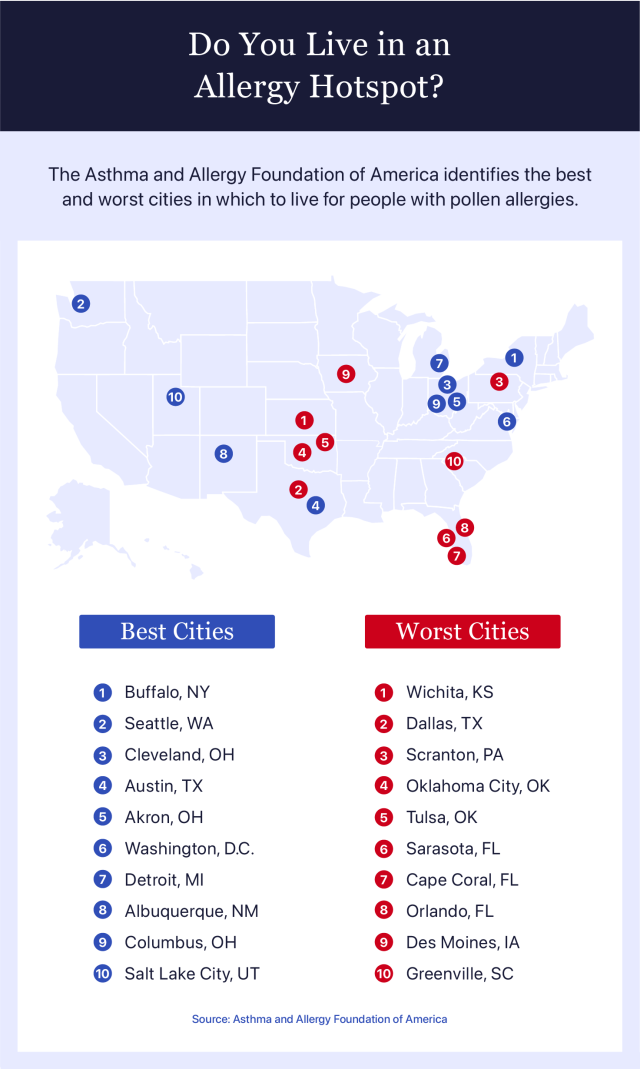Allergies Are Getting Worse: How Can I Find Relief?
Seasonal allergies affect about 81 million people in the U.S. Climate change, a superbloom and recent growing season shifts have made things extra tough for people with allergies. We explore why allergies are so bad recently and share tips for managing symptoms without medications.

Why Are Allergies Worse This Year?
Allergies are worse this year and have been worsening over the last few years because seasonal allergy-inducing pollen counts are developing earlier and lasting longer each year. People with allergies often experience sneezing, congestion, itchy eyes and sinus pressure.
Research suggests that climate change is a significant factor in worsening allergies. One recent study revealed that pollen seasons intensified 21% and grew 20 days longer on average between 1990 and 2018.

Finding relief from these changes can be challenging. During the height of the COVID-19 pandemic when people wore masks regularly, those with allergies reported improvements in their symptoms, which experts attribute to the filtering of allergens and other irritants through the masks. As people have shifted to less frequent mask wearing, reports of allergy symptoms have risen.
Allergy medications such as Singulair and Zyrtec can offer some people relief, but they can also cause side effects such as dizziness and abdominal pain. These can also be more serious. Singulair, for example, comes with a U.S. Food and Drug Administration-required boxed warning due to its impact on mood and behavior. Be sure to always contact your health care provider before starting any new medications.
Climate Change
Climate change is having a significant effect on seasonal allergies. Rising temperatures are causing earlier leafing and blooming of plants and longer growing seasons, leading to more intense and longer pollen seasons. The allergy season has become worse for millions of Americans over the past 50 years. The freeze-free growing season has been an average of 15 days longer since 1970.
Higher levels of greenhouse gasses are also associated with an increase in pollen allergy symptoms. Research indicates that plants exposed to higher levels of carbon dioxide produce more grass pollen, leading to more severe allergy symptoms and an increased risk of asthma attacks. This also means that many are experiencing allergies or severe allergies for the first time.
Climate change is expected to continue to worsen pollen seasons in the years ahead as the level of greenhouse gasses in the atmosphere increases. It will continue to impact where people can thrive, making some U.S. cities better for asthma and allergy sufferers than others.
Seasonal Allergies
Allergic rhinitis, also known as seasonal allergies, affects an estimated 81 million people in the U.S. and can greatly impact quality of life. The amount of pollen in the air at any given time is dependent on the season and your geographic region. The freeze-free season in springtime is more than two weeks longer than it was in 1970. This enables plants to flower more, releasing increasing amounts of pollen into the air.
Multiple types of pollen allergies also add to the struggle. Many people are allergic to multiple pollen sources that bloom during the spring, summer and autumn seasons, such as specific trees, grasses, weeds and flowers. Seasonal allergies can worsen breathing rapidly and unpredictably in those with asthma . Every family that includes someone with asthma should work with their health care provider to create an asthma action plan so they are prepared for emergencies.
Superbloom
After an unusually wet winter across the Western U.S. following years of drought in some places, the region is experiencing a rare phenomenon known as a superbloom — a massive amount of flowers blooming in a very short period of time. Dormant wildflower seeds accumulate during the dry years and then germinate following heavy rains and warm temperatures. The expansive blooming leads to an increase in pollen released into the air.

Superblooms are rare events, typically occurring once every 10 to 15 years. However, this year marks three superblooms in California within the past decade. The last two happened in 2017 and 2019. Climate change-related shifting weather patterns are likely significant contributing factors.
Allergies vs. COVID-19 Symptoms
Although seasonal allergies and COVID-19 share some symptoms, people infected with COVID-19 often experience body aches, chills, fever, nausea and shortness of breath, which are not typically seen in seasonal allergies. People infected with COVID-19 are more likely to experience a consistent cough, physical weakness, loss of taste or smell, headaches or a sore throat than allergy sufferers.
It can be challenging to distinguish between seasonal allergies and COVID-19. If you think you have either, be sure to see your health care provider. It is also important to remember that some variants of COVID-19 have been accompanied by new symptoms. For example, the recent Arcturus variant is highly transmissible and has a new symptom not previously seen in other variants – itchy eyes. Arcturus’ variation of conjunctivitis is very similar to the itchy eye symptoms common with allergies, making distinguishing between the two conditions challenging for people.
COVID-19 usually presents with a wider variety of symptoms. While seasonal allergies may cause discomfort, COVID-19 is a serious illness. A COVID-19 test can determine the cause of symptoms and ensure people get the appropriate treatment.
Best and Worst U.S. Cities for Allergy Sufferers
According to the Asthma and Allergy Foundation of America’s 2023 Allergy Capitals rankings, some of the worst cities for allergy sufferers in the U.S. include Wichita, Dallas and Oklahoma City because of high pollen scores and above-average use of allergy medicine. Tulsa, Oklahoma, and Scranton, Pennsylvania, are also listed among the worst cities.

In contrast, some of the best cities for allergy sufferers in the U.S. include Cleveland, Seattle and Buffalo, New York, which have lower average pollen counts and better air quality.
Medication Treatment for Seasonal Allergies
Pharmacologic therapy, such as oral and intranasal medications, is often used in the management of allergic rhinitis. Treatment options include antihistamines, nasal steroid sprays, decongestants and nasal washing with sinus rinses.
The Risks
Allergy medications are not without risks. Many have side effects that are usually mild, but some side effects can be life-threatening.
- Lawsuits over Singulair accuse the manufacturer of failure to warn consumers of the risk of possible suicidal thoughts and other neuropsychiatric problems.
- Cancer, pain, dizziness and fatigue are all listed as potential side effects of an injectable allergy medication called Xolair.
Some side effects are less severe but can still have a dangerous impact. Some antihistamines, such as diphenhydramine (Benadryl) and cetirizine (Zyrtec), can make people drowsy and impede their ability to operate a vehicle or other heavy machinery.
The Benefits
Despite the risks, over-the-counter antihistamines are readily available and can provide consistent relief for many.
- Nonsedating options are available, and antihistamines begin working quickly to relieve symptoms.
- Nasal corticosteroid sprays offer allergy relief for those struggling with congestion from nasal allergies.
It’s important to talk to a doctor or clinician to determine the best treatment plan for your allergy symptoms. Be sure to tell your doctor about all other medications you’re taking to avoid adverse interactions.
How to Naturally Reduce Exposure to Allergens
Some natural remedies and adjustments to your daily routine can help relieve seasonal allergy symptoms. Simple strategies such as monitoring your local area’s pollen forecast and staying indoors on windy days allow you to take control of your exposure to the pollen that causes seasonal allergies.
Environmental control measures, like keeping your windows closed and wiping your pets down before they come inside, can also help alleviate symptoms. Behavioral adjustments can make a big difference, too. Showering before bed allows you to remove the pollen in your hair and on your skin. When you re-enter your home after being outside, change your clothes and then wash your hands and face.

Taking some simple steps can help mitigate the impact of pollen on your daily life. Discuss potential strategies with your health care provider to help find the best solution for you.
Calling this number connects you with a Drugwatch.com representative. We will direct you to one of our trusted legal partners for a free case review.
Drugwatch.com's trusted legal partners support the organization's mission to keep people safe from dangerous drugs and medical devices. For more information, visit our partners page.

